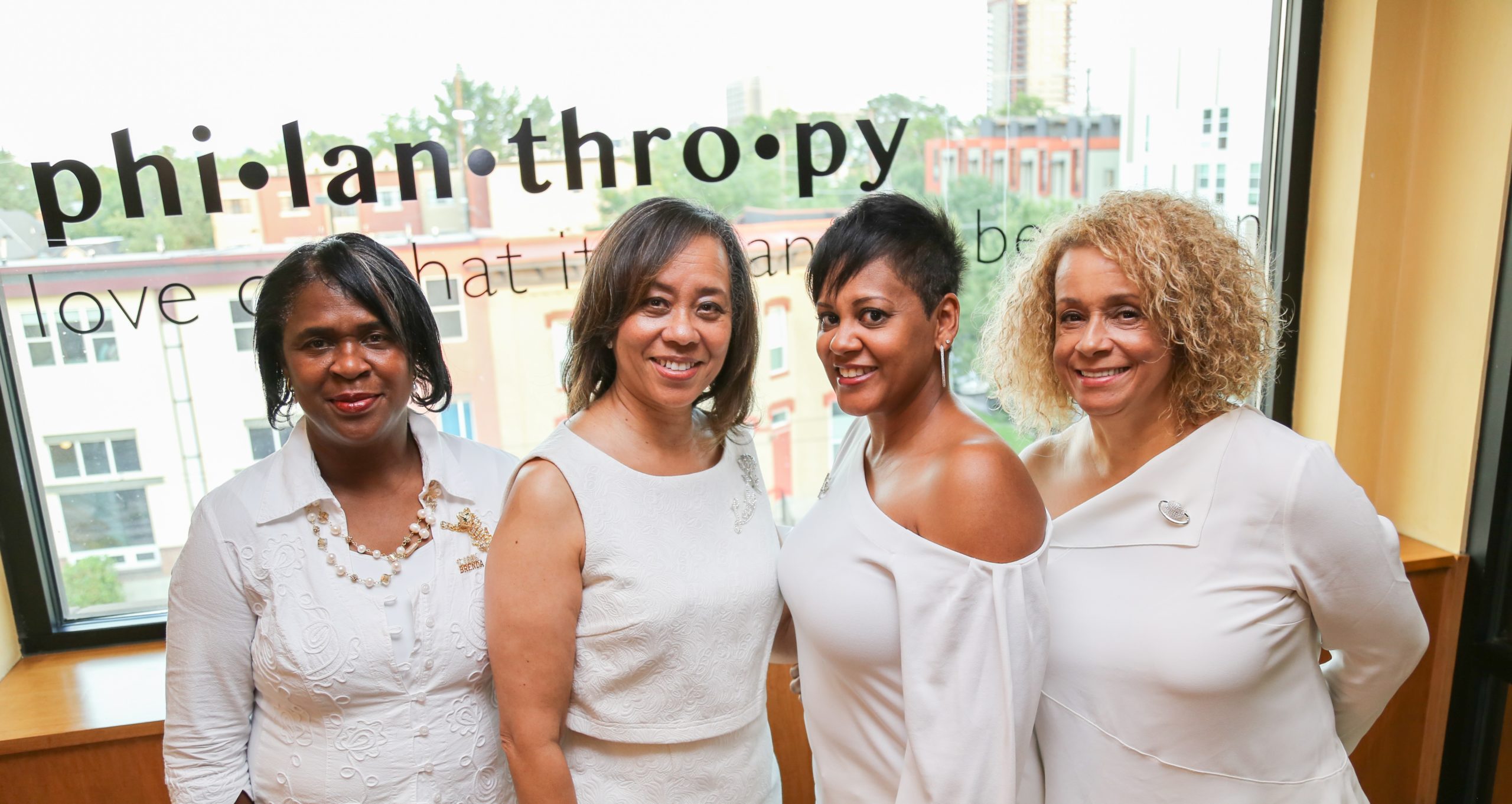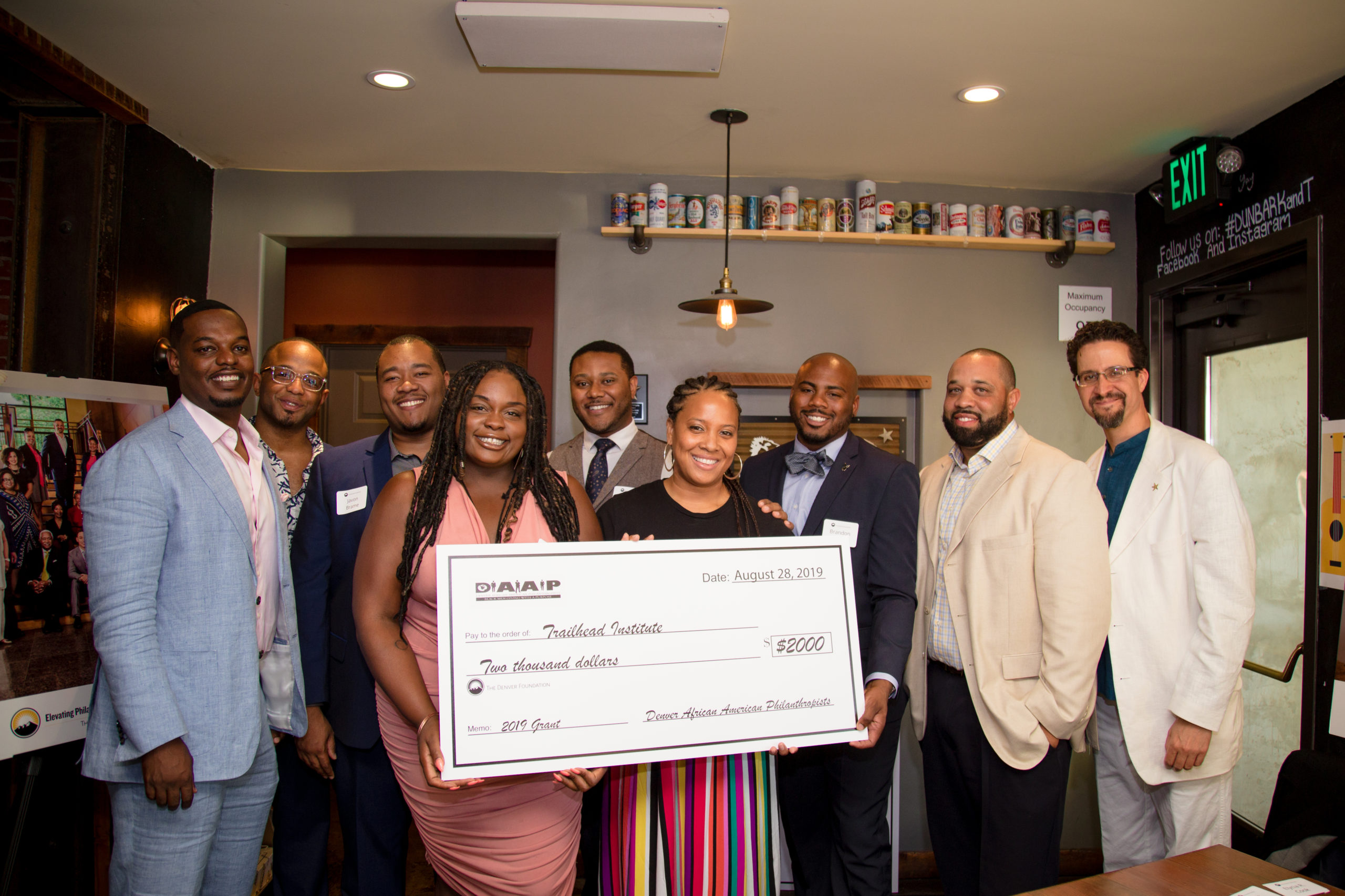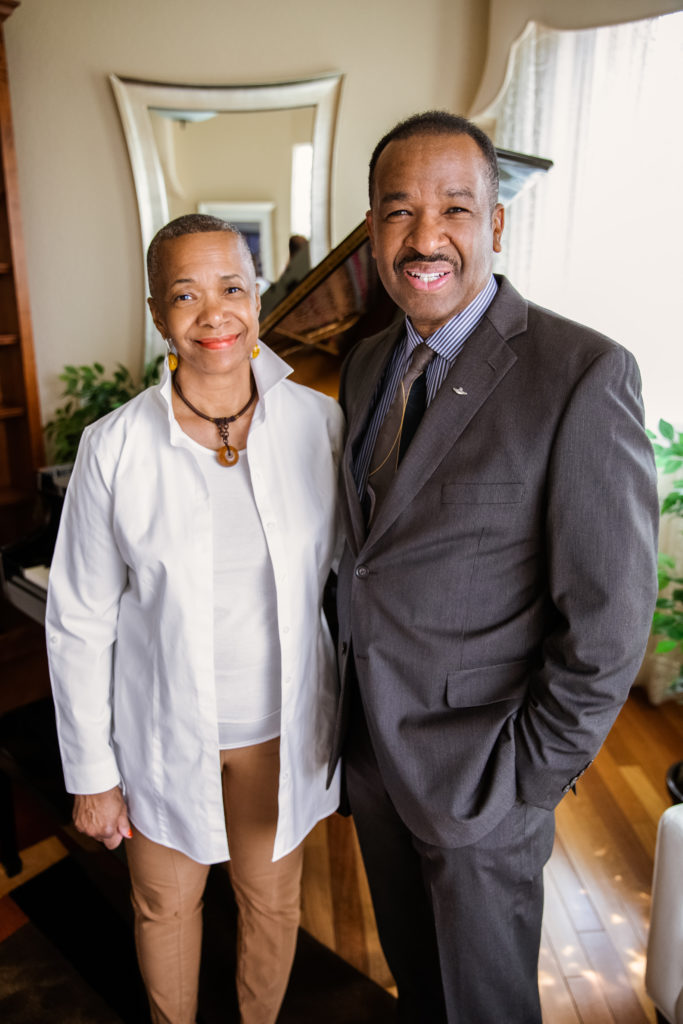This story appears in the August 2020 edition of the Denver Urban Spectrum.
Like so many things in this unusual, difficult year, Black Philanthropy Month carries a special weight in 2020. Established in 2011 by the African Women’s Development Fund USA, Black Philanthropy Month is an annual opportunity to reflect on the legacy of generosity within the Black community — and to imagine a future shaped by philanthropists of all kinds.

This year’s Black Philanthropy Month, themed “Foresight 20/20,” is also a call to action. The pandemic continues to disproportionately harm BIPOC communities, exposing deeply rooted inequities in our economic, educational, health, police, and criminal justice systems. At the same time, there’s an energized, amplified movement for racial justice. More than 20 million people took to the streets to protest the murders of George Floyd, Breonna Taylor, Ahmaud Arbery, and other Black Americans, affirming in cities around the world that Black Lives Matter.
The Denver Foundation is proud to answer that call, and to honor the ways in which Black, Indigenous, and People of Color (BIPOC) communities strengthen Metro Denver and Colorado.
On Juneteenth, the Foundation proudly announced the establishment of the Black Resilience in Colorado (BRIC) fund, which will address systemic racism and its impact on Black communities across the seven-county Metro Denver region. The immediate goal is to distribute $1 million to Black-led and serving organizations in the fund’s first year, through a process driven by local Black leaders.
“The Denver Foundation has been working to advance racial equity for more than 25 years,” says Javier Alberto Soto, President and CEO of the Foundation. “With the launch of the Black Resilience in Colorado initiative, we deepen our commitment and live up to one of our core responsibilities, which is to invest in organizations that the community knows and trusts.”
BRIC has been many years in the making. The first seeds were planted way back in 1997, when the Foundation began building bridges at the neighborhood level through its Strengthening Neighborhoods program and what became known as the Inclusiveness Project. Both of these programs are now nationally known for modeling community-driven solutions through inclusive practices and relationship building.
The idea for BRIC really began to take shape about six years ago, as the Foundation dug even deeper into acknowledging, engaging, and supporting the philanthropic investments of BIPOC communities, and the profound ways in which their contributions positively impact Metro Denver. When the pandemic took root in March, it was clear that the Foundation could no longer wait.
Even in normal times, organizations that are trusted by and truly rooted in BIPOC communities — particularly those that are led by and serve Black people and/or African immigrants and refugees — have fewer resources and less access to mainstream, white-dominated philanthropy. BRIC will help these organizations withstand current crises and build long-term sustainability.
“The BRIC initiative is a long-time vision come true,” says LaDawn Sullivan, Director of Leadership & Equity at The Denver Foundation. “As a longtime Black female professional in the nonprofit sector, I am proud of the incredible leadership of Black and people-of-color-led nonprofits and foundations and the steadfast support of Colorado’s Black community. Together, we are the changemakers that will impact and transform our communities.”
“As Ruth Denny’s granddaughter, I feel closer to her legacy of Colorado civil rights activism,” Sullivan adds, evoking the legendary activist who died in 2012 at the age of 91. “As the mother of two Black sons, I take a hopeful breath. Let us continue to work collectively to dismantle oppressive systems and build a better, racially equitable community.”
The Black Resilience in Colorado initative will be managed by The Denver Foundation, which has made an initial contribution of $50,000. The Colorado Health Foundation has invested $500,000. Other initial partners include Mile High United Way, the Gates Family Foundation, and Molson Coors. Individual donors have stepped up, as well, including Tina Walls, past President of The Denver (CO) Chapter of The Links, Inc.
Denver African American Philanthropists (DAAP), a men’s giving circle at The Denver Foundation, has been instrumental in getting BRIC off the ground with its first contribution, of $10,000.
“BRIC is an undeniable example of an effort that destroys mainstream notions about the African American community as it relates to giving,”
“BRIC is an undeniable example of an effort that destroys mainstream notions about the African American community as it relates to giving,” says Brandon Bruce, who with Haroun Cowans, co-chairs DAAP, the largest men’s giving circle west of the Mississippi. “BRIC is an example that African Americans not only give, but give abundantly to causes that help support their communities to become self-sustaining and self-reliant. I believe that if our community wants to see more grassroots and boots-on-the-ground organizations receive support, they should also give to this fund. It is my belief that we can heal various spaces by supporting the organizations that BRIC intends to center. This is the work DAAP is committed to engage in as we move forward.”

“BRIC aligns with our values as a group of Black men working to democratize philanthropy and continuously advocate for our Black community,” adds Raymael Blackwell, a member and past co-chair of the group. “COVID-19 only helped highlight the inequities prevalent in our community and we will always strive to ensure our community has everything we need.”
During Black Philanthropy Month, The Denver Foundation will match total contributions from individual donors dollar-for-dollar up to $50,000. As you make your donation online, by August 29, 2020, enter “BPM 2020” in the Comments field of the donation form. BRIC will celebrate Black Giving Day on August 28 with a virtual celebration recognizing the historical and cultural roots of Black philanthropy. To receive a detailed invitation please email events@denverfoundation.org with the subject line “Black Giving Day Celebration”. Further details about how to give, and how to apply for a grant, are available on www.denverfoundation.org/blackresilience.
Black Philanthropy Month: Celebrating ‘Giving DNA’
Though it often evokes images of black-tie galas and large, splashy sums, “philanthropy” can be defined in broad and inclusive terms that place equal value on each of the “Five Ts.” Gifts of Time, Talent, Treasure, Testimony, and Social Ties are all philanthropic in nature, and anyone who gives of themselves to help others is, by definition, a philanthropist.
The Denver Foundation has long lifted up these traditions of giving within the Black community in Metro Denver, where giving is part of the community’s DNA. Black Philanthropy
Hundreds of local leaders, families, and individuals have led the way, including Mary and Warren Washington, and the Mosely Family (pictured) who direct their charitable giving through donor-advised funds managed by The Denver Foundation.

In addition to individuals and families, people of shared backgrounds and interests come together to build strength and impact through numbers. BIPOC collective giving circles and groups at the Foundation include Denver African American Philanthropists (DAAP), LatinasGive!, and Latinos Impacting our Future Together (LIFT). The Foundation is also home to the White Rose Foundation Endowment Fund, which supports the Denver (CO) Chapter of The Links, Incorporated and helped to establish Sisterhood of Philanthropists Impacting Needs (SPIN).
Giving circles help members build networks and solidarity within each group and across a wider network of like-minded philanthropists. For example, LatinasGive! — which primarily supports organizations that work with the Latinx community across Metro Denver — recently issued a special round of grants to support the Black community in response to murder of George Floyd and the protests that followed. In a letter, the group expressed support for their Black brothers and sisters: “Tu lucha es mi lucha. Your struggle is my struggle. Black Lives Matter,” it read.
“Tu lucha es mi lucha. Your struggle is my struggle. Black Lives Matter,”
In addition to efforts to bolster philanthropy in BIPOC communities, The Denver Foundation lifts up nonprofit leaders of color with the goal of building a sector that is more inclusive, equitable, and reflective of community challenges, desires, and approaches to problem solving. The Executive Directors of Color Institute provides a peer-learning network for leadership development and capacity building. The Landscape Project is a cohort of 18 nonprofit organizations (nine BIPOC-led; nine white-led) that are strengthening and expanding racial equity policies and practices in the nonprofit sector at large through peer learning. And through the Community Navigators Program, the Foundation walks alongside and behind BIPOC leaders as they connect and overcome barriers to create the change they want to see.
Though the Foundation has been committed to its inclusiveness work for decades, there’s a feeling of growing momentum, opportunity, and even optimism, despite the somewhat grim events happening in the world. As the launch of the Black Resilience in Colorado initiative illustrates, now is the time for big ideas that respond and reflect the moment, which is charged with both struggle and opportunity.
“The establishment of BRIC was a moment, but the ongoing growth and work of BRIC is movement,” says LaDawn Sullivan. “We need everyone’s help to sustain this movement over the long term, so that Black-led organizations shift from surviving to thriving. To support these organizations that are critical to their communities as we all work to dismantle systemic oppression and co-create racially equitable communities.”
To give to the Black Resilience in Colorado initiative, or to learn how to apply for a grant, please visit denverfoundation.org/blackresilience. During Black Philanthropy Month, The Denver Foundation will match total donations from individuals up to $50,000. For more information, call 303.300.1790, or email lsullivan@denverfoundation.org.
All photos taken by Flor Blake. Pictured in this article top to bottom: Denver (CO) Chapter of The Links, Incorporated; Denver African American Philanthropists (DAAP) and grantees Trailhead Institute; Denver Foundation Donors and Mosely Family siblings, Edna Futrell and Eric Mosely.
